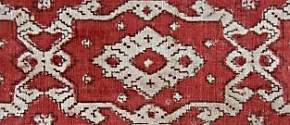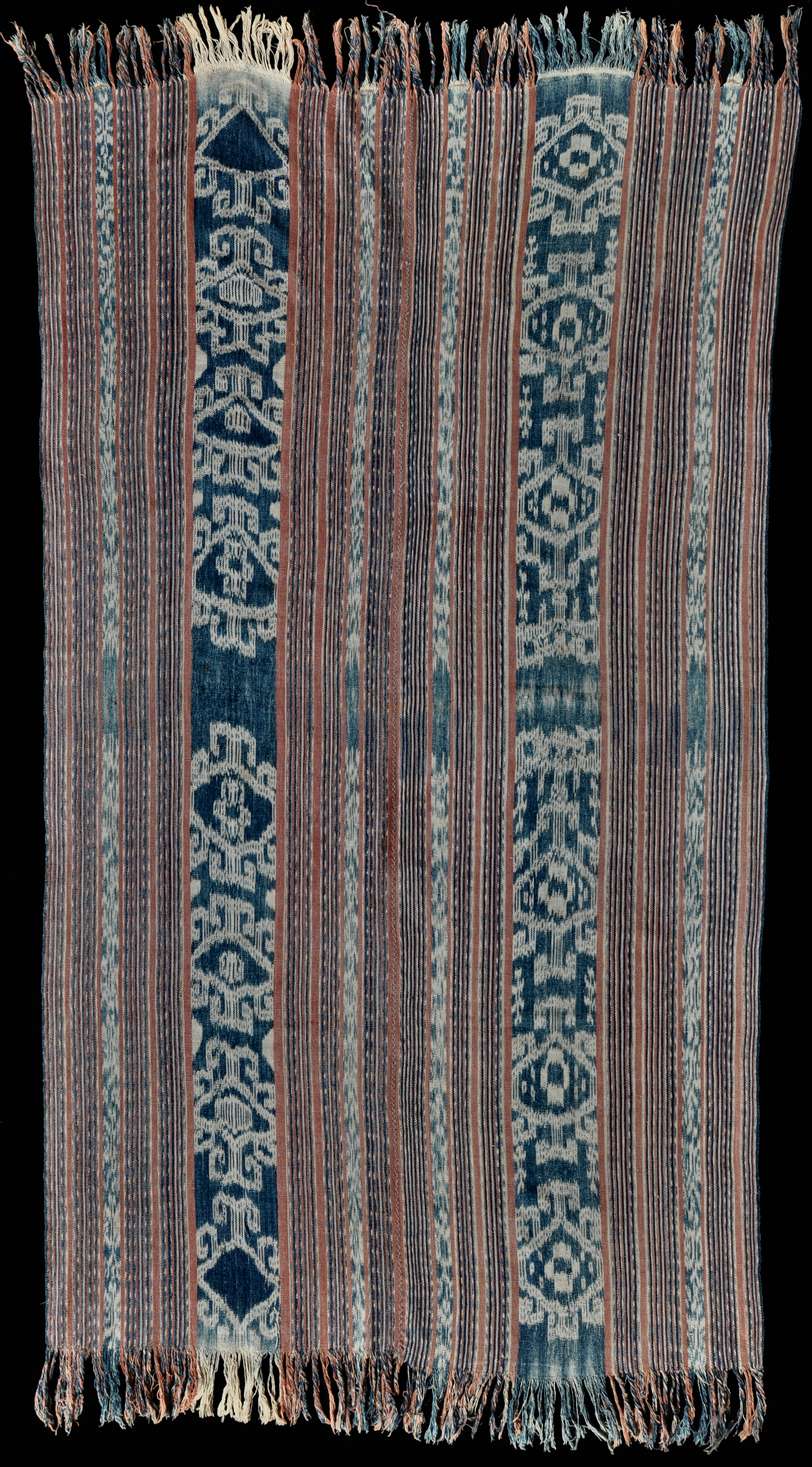| |
 mouse over to magnify mouse over to magnify
| | | | 169 Timor, East Timor
Beti naek (men's wrap)�
| | Locale: | Oecusse/Ambenu, the East-Timorese exclave in West-Timor. Village in the lower elevations. Atoni people. | | Period: | Early 20th century | | Panels: | 2 | | Design: | Beti naik (man's blanket in Dawan). Bands of indigo and white ikat alternated with bands of stripes in indigo and morinda, and a few very narrow accent stripes in somewhat paled warm yellow. The main motif, called kaif, represents ancestral relationships. However, it is quite possible that it was originally inspired by Indian tradecloth imported by the VOC.
Below is a detail of 17th-18th C. chintz sarasa with VOC trade stamp.
 | | Size: | 107 x 171 cm (42.1 x 67.3 in) | | Weight: | 740 g (404 g/m2) | | Yarn: | Cotton, hand-spun, great gauge veriations between very fine and medium; weft unusually fine.� | | Comment: | Old Ambenu beti naik in excellent condition. Textiles from Ambenu enclave are rare due to the isolation of the area. Like many older Timor pieces it tapers distinctly, one end measuring 105 cm and the other 109 cm. In Ambenu, symmetry used to be avoided, even in the size of panels, as it was considered inauspicious. To quote Brazilian Portal Sao Francisco: ' Embora os panos compostos de dois painéis pareçam simétricos, um painel é de facto mais estreito do que o outro.' Here even the patterns differ. The cloth shows its age through its patina and moderate overall fading, but is in excellent condition. All natural dyes, notably including the yellow nuance stripes. | | Background: | Additional information in chapters on Timor and East Timor. | | Published: | Woven Languages, 2014.
Ikat Textiles of the Indonesian Archipelago, 2018.
Timor: Totems and Tokens, 2019.
| | Compare: | 118 002 189 | | Sources: | Nearly identical to beti naik from Piotafo village in Yeager and Jacobson, Textiles of Western Timor, Plate 194. Very to rather similar to Plates 192, 193. See also Chapter 8.4.2.2. Also very similar to the other Ambenu in our collection, PC 118, 189 and 002, except that the latter is somewhat younger and both are symmetrical. From old Dutch collection. | | |
 ©Peter ten Hoopen, 2025
All rights reserved.
|
|


